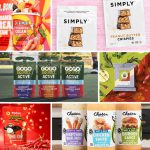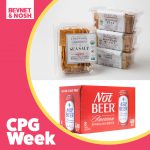Deloitte’s American Pantry Study: Consumer Perception of Health & Wellness Evolves
For today’s food and beverage entrepreneurs, it’s a given that attributes of health and wellness should be inherent to innovation and new product development strategies. However, consumers are constantly updating their definition of “healthy,” and because their preferences for ingredients and functional benefits are evolving, companies need to stay on top of what is new and engaging. That was one key in finding in Deloitte’s recently released American Pantry Study, which examines purchasing behavior of American consumers as it relates to national food, beverage and household brands.
Deloitte, the well-known accounting and professional services firm, this week released the annual study, which utilized a January, 2015 online survey of 4,013 consumers with a demographic mix that broadly resembles the overall population of U.S. consumers, according to the company. Deloitte also collected ethnographical data using a smartphone app “to capture in-the-moment insights about how food shoppers make decisions while shopping.” Overall, the study pulled consumer data on 354 brands across 34 product categories.
The study found that while health and wellness continues to be a key priority for consumers, “specific preferences are constantly changing.” As an example, Deloitte reported that in 2015, 47 percent of consumers described themselves as “health conscious,” up from 46 percent in 2010, a relatively minor bump. However, 35 percent of survey respondents described themselves as “ingredient sensitive” in 2015, a 6 percent jump from 2010.

Another interesting note from the study is that demand for healthy and sustainable products varies by category. Deloitte asked consumers to align a range of statements with specific product categories, and its findings indicated that aspects of sustainability are actively considered while making purchases in bottled water, dairy-yogurt, juices, chocolates and cereal. When it comes to organic products, consumers are most focused on organic formulations in categories of dairy-yogurt, juices, soups, dairy-cheese and peanut butter/jelly.
Below are the statements that Deloitte utilized and a graph indicating the placement of categories organized in order of desired emphasis on health and wellness:
- I actively seek out healthy versions while making purchases in this category
- I actively consider sustainability aspects (e.g. local sourcing, recyclable packaging, and water neutrality) while making purchases in this category
- I actively try to avoid products with preservatives, artificial sweeteners or other chemicals while making purchases
- I actively seek organic products in this category
- I actively seek GMO-free products in this category
- I actively seek gluten-free products in this category

Moreover, consumers are less price-sensitive when it comes to products that they care about, Deloitte reported, especially when it comes to convenient and healthy foods and beverages. Eighty-six percent of consumers prefer convenient options that are also healthy, and 25 percent are willing to pay a 10 percent premium or more for healthier versions of a product, the study found. Additionally, 41 percent chose a product while shopping at the shelf because the label addressed their health and wellness concerns. Deloitte noted that “it might not be unrealistic to expect that this willingness to pay a premium would hold steady or even increase as the economy improves.”













